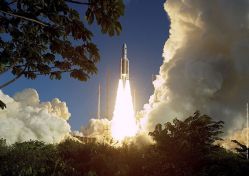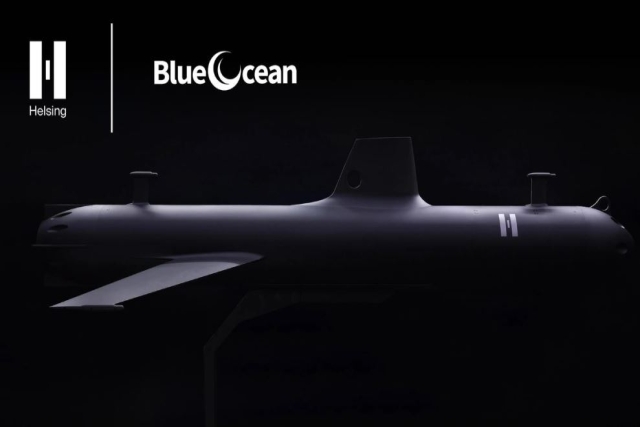India To Launch Its First Military Satellite On Friday

India’s very first naval satellite GSAT-7 will be launched this Friday from Kourou, French Guiana which is to be operated from an orbital location of 74 degrees East.
The 2,650 kg satellite with transponders in Ku-band, S-band, C-band and ultra high frequency band will improve communication among various warships, including the upcoming Russian origin aircraft Vikramaditya, according to Deccan Herald.
India will also get its second military satellite, GSAT-7A developed by Indian Space Research Organisation (ISRO) for the Indian Air Force. Both projects are three to four years behind schedule.
The naval pay-load has a standard I2.5K bus architecture, specially configured to suit mission requirements, with both the satellites having a life of approximately 15 years.
It is integrated onto ArianSpace’s VA215 rocket, which is scheduled to take-off along with European satellite EUTELSAT-25B/E hali-1 on Friday, an ISRO spokesperson was quoted as saying by Deccan Herald.
GSAT-7 is one of the four major launches for Isro in 2013-14. It is funded by the Indian Navy, and by more than a month ago was shipped to the French Guiana launch pad from the Isro satellite centre.
The Centre had sanctioned more than Rs 400-crore to book a berth for its GSAT-7 satellite on the commercial ArianeSpace rocket.
In the last fiscal, the government initially sanctioned Rs 207 crore for the launch service but later raised the allocation by more than double to Rs 448.51 crore, signalling advanced launch vehicle booking for the naval satellite.
The 2013-14 budget allocates only Rs 14 crore for the GSAT-7 launch service, suggesting payment for some other logistic arrangements.
GSAT-7 was initially planned for launch on-board indigenous geo-synchronous satellite launch vehicle (GSLV). But in the absence of an operational GSLV and due to the “schedule criticality” of GSAT-7 satellite, provision is made for the launch of GSAT-7 satellite through procured launch service, says the 2013-14 budget document.
In last year’s budget document, Isro said in the absence of GSLV, permissions from the government was sought for the foreign launch of the military payload. The generous hike of Rs 241 crore is a clear indication of the go-ahead from the government.
As Isro is taking steps to launch the two military satellites, the government is considering a proposal from the armed forces to create a new space command under the overall control of the Indian Air Force.












